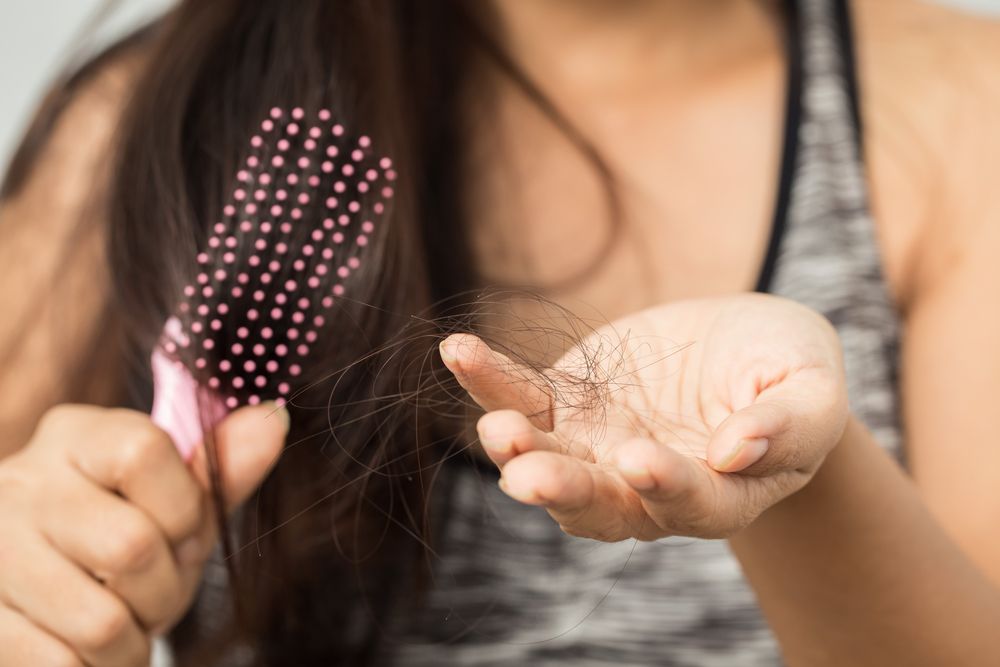If you are experiencing hair loss because of an eating disorder, it can be very distressing. Not only is your appearance changed, but you may also feel like you are losing control over your body. It is important to address this problem as soon as possible, both for your physical and emotional health. In this blog post, we will discuss the causes of hair loss due to eating disorders and how to prevent them.
Contents
What Are Eating Disorders?
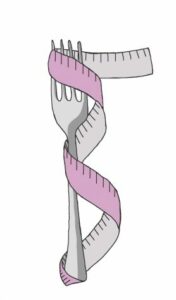
Eating disorders are serious mental illnesses that can have a negative impact on your physical health. There are three main types of eating disorders: anorexia nervosa, bulimia nervosa, and binge-eating disorder. Anorexia nervosa is characterized by self-starvation and an intense fear of gaining weight. Bulimia nervosa is characterized by episodes of bingeing followed by purging through methods such as vomiting or using laxatives. Binge-eating disorder is characterized by episodes of overeating without purging afterward.
All three types of eating disorders can cause hair loss due to the way they change the body’s nutrient balance and hormone levels. When you have an eating disorder, your body is not getting the nutrients it needs. This can cause a number of psychological as well as physical problems.
It is important to note that you do not have to be underweight to have an eating disorder. In fact, people of all sizes and shapes can suffer from these illnesses.
What Is The Connection Between Eating Disorders And Hair Loss?
There are a few ways that eating disorders can cause hair loss.
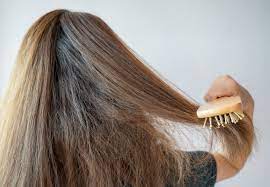
- One is through a condition called telogen effluvium. This is when the growth cycle of your hair is interrupted, causing the hair to fall out prematurely. Telogen effluvium is usually caused by a sudden change in your body, such as severe weight loss.
- Another way that eating disorders can cause hair loss is through anemia. Anemia is a condition in which there is not enough iron in the blood. This can be caused by not getting enough iron-rich foods in your diet or by losing blood through vomiting or other means. Anemia can also cause fatigue, pale skin, and shortness of breath.
- Eating disorders can cause a condition called diffuse alopecia areata. This is when the hair follicles are attacked by the immune system, resulting in patchy hair loss. Diffuse alopecia areata can be caused by stress, including the stress of having an eating disorder.
- The nutritional deficiency caused by an eating disorder can also lead to a condition called trichorrhexis nodosa. This is when the hair shafts become damaged and break easily.
- An average person has around 100,000 hair follicles. However, people with eating disorders can have fewer hair follicles. This is because the hair follicles are not able to grow properly when the body is malnourished.
- Due to the body’s inability to properly grow hair, people with eating disorders often have thinning hair. Thinning hair is when the diameter of the hair shafts becomes smaller. This can happen all over the head or in specific areas.
- Lastly, the psychological and emotional stress of having an eating disorder can also lead to hair loss. This is because stress can cause the hair follicles to go into a resting phase. When the hair follicles are in a resting phase, they do not grow new hair.
These are some of the possible ways that eating disorders can cause hair loss. It is important to seek help if you are experiencing any of these problems.
Signs Of Hair Loss In Eating Disorders
There are a few signs that you may be losing hair due to an eating disorder. These include:
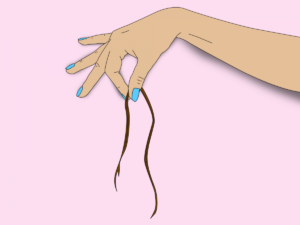
- noticing more hair in your brush than usual
- finding hair on your pillow in the morning
- seeing thinning patches of hair
- noticing that your hair is breaking more easily
- seeing more hair in the drain after showering
- finding clumps of hair on your clothes
- seeing bald patches on your scalp
- having thinner, weaker, and more brittle hair
If you are experiencing any of these signs, it is important to see a doctor. They will be able to help you get the treatment you need.
Effects Of Eating Disorder-Related Hair Loss
Losing hair can have a negative impact on your physical and mental health. Some of the most common effects include:
- Low self-esteem and body image issues: Losing hair can be a very traumatic experience. It can cause you to lose confidence in yourself and your appearance.
- Avoiding social situations: You may start to avoid social situations because you are afraid of what people will think of you.
- Isolation: You may start to feel isolated from your friends and family. This is because you may feel like no one understands what you are going through.
- Comparison: You may start to compare yourself to other people. This is because you may feel like you are the only one with this problem. This can also encompass comparing your hair to other people’s hair.
- Depression and anxiety: You may start to feel depressed and anxious. This is because you may feel like you are losing control of your life.
- Loss of appetite: You may start to lose your appetite. This is because you may be afraid of gaining weight.
All these effects can take a huge toll on your mental and physical health. It is important to seek help if you are experiencing any of these problems.
Other Physical Problems Caused By Eating Disorders
In addition to hair loss, there are a number of other physical problems that can be caused by eating disorders. These include:
- Anemia: Anemia is a condition where there is a decrease in the number of red blood cells. This can happen by a lack of iron in the diet.
- Brittle nails: Brittle nails are a common side effect of anorexia nervosa. This is because the nails do not receive enough nutrients from the body.
- Dry skin: Dry skin can be caused by a lack of vitamin A in the diet. Vitamin A is necessary for healthy skin.
- Digestive problems: You may start to experience digestive problems. This is because you may not be getting the nutrients your body needs.
- Muscle loss: You may start to lose muscle mass. This is because your body is not getting the nutrients it needs to build muscle.
- Bone loss: You may start to lose bone density. This is because your body is not getting the nutrients it needs to build and maintain healthy bones.
- Heart problems: You may start to experience heart problems. This is because your heart is not getting the nutrients it needs to function properly.
All of these issues can lead to serious health problems. It is important to seek help if you are experiencing any of these problems.
Preventing Eating Disorder-Related Hair Loss
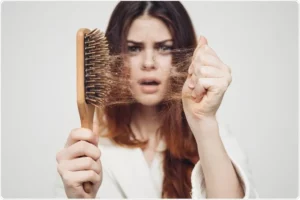
In order to resolve the issue of hair loss caused by eating disorders, it is important to seek treatment for the eating disorder. This is because hair loss might be an indicator of an underlying problem. Some ways to seek treatment for an eating disorder include:
- Seeing a nutritionist or therapist
- Joining a support group
- Talking to your friends and family about your problem
- Taking prescription medication or supplements
- Making lifestyle changes
In addition to professional help, you can also adapt to the following self-help strategies to take care of your hair. These include:
- Taking supplements: You can take supplements such as biotin and iron to help with hair growth. Some examples include:-Biotin-Iron-Zinc-Omega-3-Vitamin-DThese are present in a variety of fruits, vegetables, meat, grains and other sources of food.
- Avoiding crash diets: You should avoid crash diets. This is because they can lead to nutritional deficiencies which can cause hair loss.
- Massaging your scalp: You can massage your scalp with essential oils to improve circulation. Use a suitable oil or lotion such as coconut oil, olive oil, or jojoba oil.
- Avoiding harsh chemicals: You should avoid harsh chemicals such as hair dyes and straighteners. This is because they can damage your hair.
- Using gentle hair care products: Be sure to use gentle shampoos and conditioners that won’t strip your hair of its natural oils. Look for products labeled “for dry, damaged hair.” If you are struggling with an eating disorder, it is important to seek professional help. This is because
- Eating a balanced and nutritious diet: This will help ensure that your hair follicles are getting the nutrients they need to function properly. Make sure to eat plenty of fruits, vegetables, whole grains, and protein.
- Managing stress: Stress can lead to hair loss. You should try to manage stress by practicing relaxation techniques such as yoga or meditation.
- Getting enough sleep: Getting enough sleep is important for overall health and well-being. It is also important for hair health. Be sure to get at least eight hours of sleep each night.
By following these tips, you will be able to address the issue of hair loss caused by eating disorders. Eating disorder leading to hair loss is a serious problem that should not be ignored. If you are experiencing any type of hair loss, it is important to seek professional help. In addition, you can also take steps to care for your hair at home. By following these tips, you can prevent or resolve the issue of eating disorder-related hair loss.
Conclusion
Hair loss because of eating disorders can be a serious problem. If you are experiencing hair loss, it is important to seek professional help. You can also take steps to care for your hair at home by following the tips in this article. With proper treatment and care, you can resolve the issue of eating disorder-related hair loss.
If you or someone you know is struggling with an eating disorder, you may consider Mantra Care for help. We are a healthcare-providing online platform with a team of expert mental health professionals as well as nutritionists. Our experts are here to provide you with the help and support you need to recover from your eating disorder. You can visit our website to book a therapy session or download our free Android or iOS app for more information!
